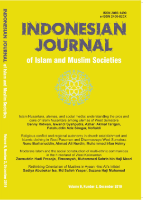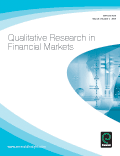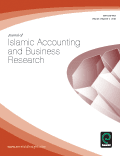
Turkish Journal of Islamic Economics-TUJISE
Scope & Guideline
Connecting Global Scholars in Islamic Economics
Introduction
Aims and Scopes
- Islamic Finance and Banking:
The journal focuses on the principles and practices of Islamic finance, including the analysis of Islamic banking systems, financial products, and the impact of Sharia compliance on financial performance. - Economic Development from an Islamic Perspective:
Research exploring how Islamic economic principles can contribute to sustainable development, poverty alleviation, and social welfare, particularly in Muslim-majority countries. - Behavioral and Experimental Economics:
Investigations into how Islamic teachings influence economic behavior, decision-making, and financial literacy among different demographics, including youth and low-income groups. - Historical and Theoretical Foundations of Islamic Economics:
The journal publishes studies that delve into the historical context and theoretical underpinnings of Islamic economics, tracing its evolution and relevance in contemporary discourse. - Policy and Regulatory Frameworks:
Discussion of the regulatory frameworks governing Islamic finance, including the role of Sharia boards, compliance standards, and the implications for financial institutions.
Trending and Emerging
- Sustainable Finance and Green Investments:
A growing emphasis on the intersection of Islamic finance with sustainability and environmental concerns, showcasing the potential for Islamic principles to guide ethical investment practices in areas like clean energy and green technology. - Digital Transformation in Islamic Finance:
An increasing focus on digital banking, fintech innovations, and the implications of central bank digital currencies (CBDCs) within Islamic financial systems, reflecting the global shift towards digital economies. - Social Impact and Philanthropy:
Research exploring the role of Islamic financial instruments, such as waqf and zakat, in addressing social issues and promoting community welfare, aligning with global sustainable development goals (SDGs). - Behavioral Finance in Islamic Contexts:
Emerging studies on how cultural and religious factors influence financial behaviors and decisions among Muslim populations, indicating a trend towards integrating behavioral insights into Islamic economics. - Interdisciplinary Approaches:
There is a noticeable trend towards interdisciplinary research that combines Islamic economics with insights from fields such as psychology, sociology, and environmental science, broadening the scope of inquiry.
Declining or Waning
- Traditional Islamic Economic Models:
Research centered on classical models of Islamic economics has decreased, possibly due to a growing interest in integrating modern economic theories with Islamic principles. - Comparative Studies with Conventional Economics:
The frequency of comparative analyses between Islamic and conventional economic systems has waned, suggesting a possible shift towards more integrated or hybrid approaches in understanding economic phenomena. - Focus on Islamic Microfinance:
While still relevant, the emphasis on microfinance within the Islamic framework has lessened, potentially indicating a saturation of research or a shift towards broader financial inclusion topics. - Regional Case Studies:
There has been a noticeable reduction in case studies focusing solely on specific regions, such as the Middle East or Southeast Asia, as researchers may be adopting a more global perspective. - Niche Topics in Islamic Finance:
Certain niche topics, such as the impact of Islamic finance on very specific sectors or demographic groups, have become less common, indicating a consolidation of research themes.
Similar Journals

Afkar-Jurnal Akidah & Pemikiran Islam-Journal of Aqidah & Islamic Thought
Empowering Scholars to Shape the Future of Islamic ThoughtAfkar-Jurnal Akidah & Pemikiran Islam-Journal of Aqidah & Islamic Thought is a premier academic journal published by University Malaya's Academy of Islamic Studies, dedicated to advancing the fields of Islamic thought and philosophy. Since its inception, it has rapidly gained recognition, achieving an impressive Q2 ranking in Philosophy and a Q1 ranking in Religious Studies as of 2023, reflecting its crucial contribution to scholarly discourse. With an increasing Scopus ranking, currently positioned at #187 out of 644 in Arts and Humanities - Religious Studies, it emphasizes the interdisciplinary nature of Islamic scholarship, catering not only to theologians but also to philosophers, sociologists, and cultural theorists. The journal welcomes articles that explore contemporary issues in Islamic thought while adhering to rigorous academic standards, providing a reflective platform for researchers, professionals, and students alike. Based in Kuala Lumpur, Malaysia, this journal operates under a commitment to open academic discourse, fostering an inclusive environment for groundbreaking research from various corners of the globe.

Indonesian Journal of Islam and Muslim Societies
Exploring the complexities of Islamic culture and politics.Indonesian Journal of Islam and Muslim Societies (IJIMS) is a leading platform for scholarly discourse in the fields of Islamic studies and social sciences, published by INST AGAMA ISLAM NEGERI-IAIN SALATIGA. Since its establishment in 2011, IJIMS has been dedicated to advancing the understanding of Islamic culture, society, and politics, with an impressive impact reflected in its Q1 ranking in Religious Studies and Q2 in Sociology and Political Science as of 2023. The journal not only ranks among the top in the Scopus database, occupying the 19th position in the Arts and Humanities—Religious Studies category, but it also offers open access to its content, making it readily available to a global audience. This commitment to accessibility ensures that researchers, students, and professionals can engage with high-quality research that informs and shapes contemporary dialogue on Islam and Muslim societies. With a convergence of rich academic contributions through to 2024, IJIMS stands as a vital resource for those looking to explore the complexities of Islam in a modern context.

Al-Jamiah-Journal of Islamic Studies
Advancing Knowledge in Islamic StudiesAl-Jamiah: Journal of Islamic Studies is a distinguished scholarly journal published by Sunan Kalijaga State Islamic University in Indonesia. Established as an Open Access publication since 2005, it aims to foster the dissemination of knowledge in the field of Islamic studies, catering to a diverse audience of researchers, professionals, and students interested in the rich tapestry of Islamic culture, religion, and thought. With an impressive Q1 ranking in Religious Studies and a Q2 ranking in Arts and Humanities for 2023, the journal stands out as a vital resource with high visibility and impact, holding a prestigious position in Scopus ranks—40th out of 644 in Religious Studies and 12th out of 173 in General Arts and Humanities. Al-Jamiah's commitment to academic excellence is reflected in its rigorous peer-review process, ensuring the publication of high-quality research. Based in Yogyakarta, Indonesia, the journal welcomes contributions that explore innovative perspectives and interdisciplinary approaches to contemporary issues affecting the Islamic world.

International Journal of Islamic Thought
Connecting Local Insights with Global Perspectives in Islamic ThoughtInternational Journal of Islamic Thought is a leading scholarly publication, dedicated to advancing knowledge and understanding in the fields of Islamic studies. Published by UNIV KEBANGSAAN MALAYSIA, FAC SCIENCE & TECHNOLOGY, this journal is positioned as an essential resource for researchers, professionals, and students alike, striving to explore and disseminate contemporary thoughts and interpretations within the Islamic intellectual tradition. With an impact factor indicative of its quality—ranking Q2 in Arts and Humanities and Q3 in Social Sciences as of 2023—the journal provides a robust platform for interdisciplinary discourse. Since its inception, the journal has embraced an open access model, ensuring that research is readily available to a global audience, thereby fostering further inquiry and collaboration. Hailing from Malaysia, the journal's commitment to contributing to both the local and international scholarly communities is underscored by its impressive standing in the Scopus rankings, reflecting its growing influence and reach in the academic landscape.

Islamic Africa
Illuminating Interdisciplinary Insights into Africa's Islamic HeritageIslamic Africa, published by BRILL, is a vital academic journal that serves as a scholarly platform dedicated to the exploration of Islamic culture and its multifaceted interactions with the African continent. With a focus on cultural studies, history, literature and literary theory, religious studies, and the social sciences, this journal invites contributions that deepen our understanding of the historical and contemporary dynamics of Islam in Africa. Although categorized in various quartiles, it holds significance as a resource for researchers and students, particularly those engaged in areas ranked within the Q3 and Q4 categories. Since its inception, Islamic Africa has evolved through converged years, actively promoting interdisciplinary dialogue among scholars. With its commitment to high-quality research, this journal aims to illuminate the complexities of Islamic traditions and societies in Africa, fostering a deeper appreciation of their contributions to global cultural heritage.

Qualitative Research in financial Markets
Illuminating Complexity in Financial AnalysisQualitative Research in Financial Markets is a premier academic journal published by Emerald Group Publishing Ltd, dedicated to advancing the field of qualitative research in finance. Since its inception in 2009, the journal has established a critical platform for scholarship that transcends traditional quantitative analysis, offering new insights into financial phenomena through qualitative methodologies. With a current impact factor that reflects its reputable standing—ranking in the Q2 category of both Economics and Finance—this journal is an essential resource for researchers, professionals, and students alike. It captures a diverse range of topics that contribute to a deeper understanding of financial markets, making it a vital asset for those looking to explore complex financial narratives. While the journal does not currently offer open access, its rigorous peer-review process ensures high-quality publications that are invaluable in both academic and practical settings. With Scopus ranks affirming its influence in the realms of Finance and Economics, Qualitative Research in Financial Markets stands out as a must-read for anyone engaged in the evolving landscape of financial studies.

Asian Journal of Accounting and Governance
Advancing Scholarly Discourse in Asia's GovernanceAsian Journal of Accounting and Governance, published by Penerbit Universiti Kebangsaan Malaysia, is a vital resource in the field of accounting and governance studies. With its commitment to enhancing the scholarly discourse in Asia and beyond, the journal serves as a platform for innovative research, critical analyses, and discussions that address contemporary issues in accounting practices and governance frameworks. Although specific metrics such as HIndex or Scopus rankings may not be provided, the significance of this journal is underscored by its accessible and scholarly content aimed at researchers, professionals, and students alike. The journal is dedicated to the principles of open access, encouraging broad dissemination and engagement with cutting-edge research in the discipline. Embracing a multidisciplinary approach, the Asian Journal of Accounting and Governance aspires to contribute meaningfully to the understanding and advancement of effective accounting systems and governance practices within diverse contexts.

Journal of Islamic Accounting and Business Research
Elevating Islamic Accounting to Global Standards.The Journal of Islamic Accounting and Business Research, published by EMERALD GROUP PUBLISHING LTD, is a leading academic journal dedicated to advancing the field of Islamic accounting and business practices. With its ISSN 1759-0817 and E-ISSN 1759-0825, this journal has established itself as a vital source of scholarly articles from 2010 to 2024, focusing on the integration of Islamic principles within contemporary business and accounting frameworks. Placed in varied quartiles across multiple categories in 2023—Q3 in Accounting and Strategy and Management, and Q2 in Business and International Management—this journal recognizes the dynamic intersection of Islamic economics and modern business theories. Situated in the United Kingdom, it plays a crucial role in supplying researchers, professionals, and students with cutting-edge insights and empirical findings, ensuring that it remains at the forefront of the discourse in its field. Furthermore, with impressive Scopus rankings, it stands out as a key resource for those seeking to explore the complexities and advancements in Islamic financial practices and business strategies.

International Journal of Economics Management and Accounting
Bridging Theory and Practice in a Collaborative EnvironmentThe International Journal of Economics Management and Accounting, published by IIUM PRESS, is a pivotal platform for researchers, professionals, and students engaged in the vibrant fields of economics, management, and accounting. With an ISSN of 1394-7680, this journal aims to disseminate high-quality research that addresses both theoretical and practical challenges within these disciplines. As an open-access journal, it facilitates greater accessibility to scholarly articles, fostering a collaborative academic environment. The journal welcomes original research, reviews, and commentaries that contribute to the understanding of complex economic systems, effective management practices, and innovative accounting methodologies. Its commitment to advancing knowledge in these areas underscores its importance in the global academic landscape, particularly within the ASEAN region. Submissions are encouraged from a diverse range of perspectives, thus ensuring a rich dialogue among scholars and practitioners alike.

Annual Review of Financial Economics
Exploring the Dynamics of Economics and FinanceAnnual Review of Financial Economics, published by Annual Reviews, stands as a pivotal journal in the fields of Economics and Finance, recognized for its rigorous analysis and comprehensive reviews since its inception in 2010. With an impressive impact factor reflected in its Q1 ranking in both Economics and Econometrics and Finance for 2023, this journal serves as an essential resource for researchers, professionals, and students keen on understanding the dynamic interplay of financial theories and practices. The ISSN 1941-1367 and E-ISSN 1941-1375 signal its commitment to accessibility and dissemination of cutting-edge research within the community. Addressing crucial topics from market behavior to economic modeling, each annual volume synthesizes the latest findings and theoretical advancements, thus contributing significantly to the global discourse within financial economics. With its high Scopus rankings, including a finance rank of #75 out of 317, the journal continues to foster a deep understanding of financial systems and their implications, serving as an invaluable tool for anyone engaged in the broader economic landscape.